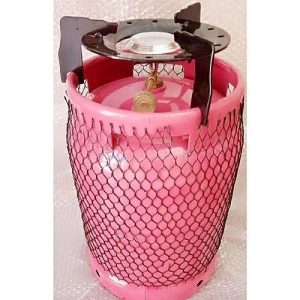Gas cylinders are used in a variety of settings, from homes to businesses, to power appliances and equipment. However, they can be dangerous if not handled properly. Hence, they are equipped with nets for the following reasons;
1. Protection Against Physical Damage
Gas cylinders are often subjected to rough handling during transportation. The safety net helps to protect the cylinder from physical damage, such as dents, scratches, or punctures. Even minor damage can compromise the structural integrity of the cylinder and make it more likely to leak or rupture. The safety net helps to do the following;
2. Prevent Corrosion
Gas cylinders are typically made from materials like steel or aluminum, which are prone to corroding when exposed to moisture or harsh environmental conditions. Corrosion can weaken the cylinder and make it more likely to leak. The safety net, made from non-corrosive materials, helps to protect the cylinder from moisture and other corrosive elements. This helps to extend the lifespan of the cylinder and keep it safe to use.
3. Stability And Safety
Gas cylinders are pressurized containers, and any sudden movement or impact can cause them to leak or even explode. The safety net helps to stabilize the cylinder and prevent it from being damaged during transportation and storage. This helps to reduce the risk of accidents and keep people and property safe.
4. Dirt Prevention
The net can help to keep the cylinder clean and free of debris. This will in turn, keep the cylinder always new.
5. Cylinder Content Identification
It can also help to identify the cylinder’s contents, as the net is often colour-coded based on the type of gas inside. This feature equally helps to protect people and property from accidents.
Safety nets on gas cylinders are not just a matter of convenience; they are indeed a vital safety measure.
5 Reasons Why Gas Cylinders Have Nets
220




